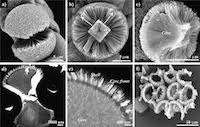



Oxalates
Avoid Certain Oxalate Foods With Cystic Organs
↑ nightshades
↑ bilberries
↑ blueberries
↑ cranberries
↑ rhubarb
↑ sorrel
↑ starfruit
Decreasing oxalates in our foods is one thing we can each do to decrease the workload upon our PKD kidneys. Oxalates are detrimental to PKD. Oxalates are a crystalline acid with a sour taste present in certain foods like rhubarb leaves and wood sorrel. The word comes from the Greek term oxalis meaning sorrel. Oxalates bind with calcium forming kidney stones. This same method reduces the absorption of calcium. Read on for the latest research with some surprising results.
Dietary Calcium Decreases Kidney Stone Formation
Eating an alkaline plant based diet seems to stop oxalates from binding to calcium. Higher intake of dietary calcium appears to decrease risk for symptomatic kidney stones, whereas supplemental calcium increases the risk. Higher dietary calcium improves bone strength much better than supplements.
Eating a plant based diet increases the body's urinary citrate level; an explanation proposed by researchers for how eating high in oxalate plant based foods decreases the risk for kidney stones. A high dietary calcium intake decreases the risk of symptomatic kidney stones. Researchers were surprised that the higher oxalate vegetarian diet resulted in less oxalate absorbed and excreted through the urine than the low-oxalate vegetarian diet.
Avoid certain foods high in oxalates primarily if one has kidney stones. Decrease the amount of protein eaten and increase your fluid intake to twice your output, enough to shut down vasopressin and to decrease cyst formation.
Uric acid is a chemical your body produces to digest purines, which occur naturally in most foods. Oxalates also naturally occur in foods. Maintaining low uric acid levels through restricting purines and limiting oxalate-rich foods may help guard against certain types of kidney stones, as well as gout -- a painful form of arthritis.
A low oxalate diet might be prescribed for high uric acid, for gout symptoms. All of these symptoms can occur with PKD. 80% of kidney stones are calcium oxalate stones. 20% of people with PKD get kidney stones. The most common type of PKD kidney stone is a calcium stone. Oxalic acid, uric acid, lactic acid, malic acid, all contribute to the body's acidity. When the body is acidic or the urinary pH tests between 5-6, the PKD body has an increased risk of forming a kidney stone, with a high urinary oxalate formation.
Higher urinary citrate seems to be the mechanism that blocks stone formation. This can come about through eating an alkaline plant based diet. What was the old time remedy for preventing kidney stones? —Why it was alkaline Shohl's solution or potassium citrate!
Taking Shohl's solution raises urinary citrate levels preventing calcium from binding with oxalate and forming calcium oxalate stones. Some researchers looked at restricting certain foods especially high in oxalate foods (meats, limiting spinach, rhubarb, beets, chocolate, wheat bran, strawberries, peanuts (all humans should avoid peanuts). But if they ate plant proteins, oxalates were not a problem.
Vegetarian Diet ↓ Risk for Kidney Stones
Oxalate is a molecule many are familiar with that prevents the absorption of calcium. Oxalate is generally not found in animal products while many plant foods are moderate or high, and some extremely high (such as spinach, beets, beet greens, sweet potatoes, peanuts, rhubarb, stevia and swiss chard). Despite this, a study from the Harvard school of Public Health found that people following a plant-based eating pattern had a lower occurrence of kidney stones, calcium oxalate kidney stones. The Italians discovered through a dietary study trial with all other things being equal, an increase in kidney stones was found amongst those who ate more protein.
There is no universal agreement on restricting high oxalate foods. It was discovered that individuals with kidney stones had a mechanism in place that forced their body to expel a higher concentration of oxalates that was then excreted into the urine (oxalates). Even before kidney cysts are apparent, PKD'rs have a high urinary oxalic acid level and a low urinary citrate level.
The Italians studied what ideal diet might prevent future bouts of kidney stones. They found that by limiting meat (all proteins), drinking 2 liters of water (in addition to any juice, or other liquids), this ideal diet diminished the recurrence of kidney stones. A diet high in fruits and vegetables, lower in proteins and high in water helped. Protein was the main nutrient that increased kidney stone reoccurrences. stones.
Oxalates Rise in PKD as Kidney Functioning Decreases
While one is on dialysis or when kidney functioning is declining kidney stones or calcium oxalate stones seem to increase. Although not common, some people have a predisposition to forming kidney stones. Others can have an inherited disorder. With PKD we develop kidney stones 20% more commonly than the average population.
Oxalates in Chard and Spinach
Chard and spinach are high in oxalates. Should either give you kidney stones or great toe pain of gout try a different leafy green like broccoli. A quick dip in boiling water, fishing the leaves out again, and tossing the water, all will give a lower oxalate count to the vegetable. The water contains the oxalates.
Salicylate
Avoid Salicylate
Salicylates are chemicals found in plants and are a major ingredient in aspirin and other pain-relieving medications. Aspirin and other pain relieving meds are not to be used with PKD Polycystic Kidney Disease. There are also naturally many fruits and vegetables that contain salicylates as well as in many common health and beauty products.
Symptoms
Asthma-like symptoms, such as trouble breathing and wheezing
Headaches
Nasal congestion
Changes in skin color
Itching, skin rash, or hives
Swelling of the hands, feet, and face
Stomach pain
In severe cases, a salicylate allergy can lead to anaphylaxis, a life-threatening emergency.

